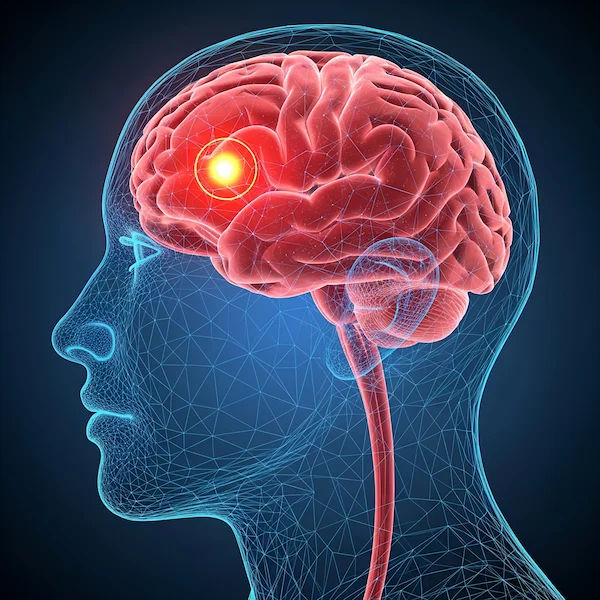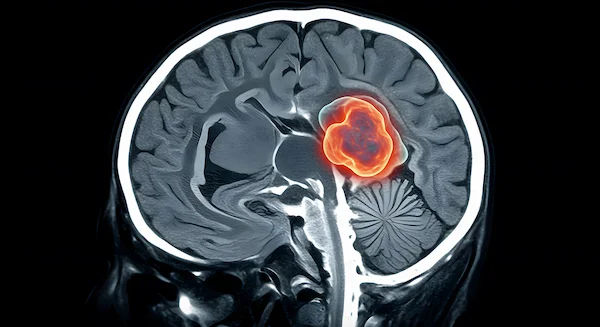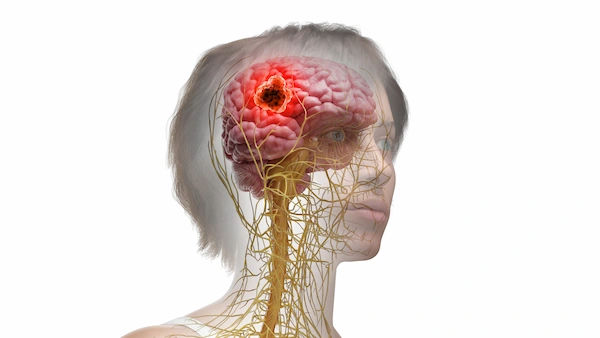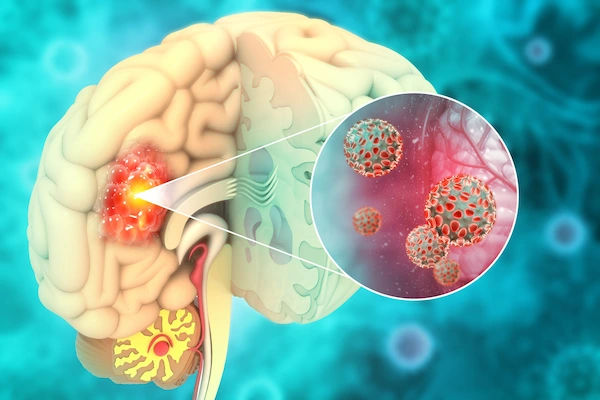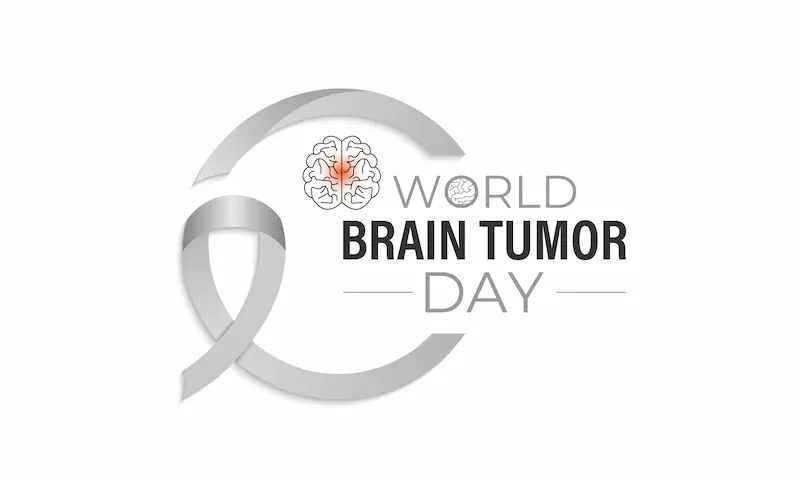Guide to Advances In Brain Tumour Treatment
Discover the latest advances in brain tumour treatments, including innovative therapies, improved outcomes, and what patients need to know.

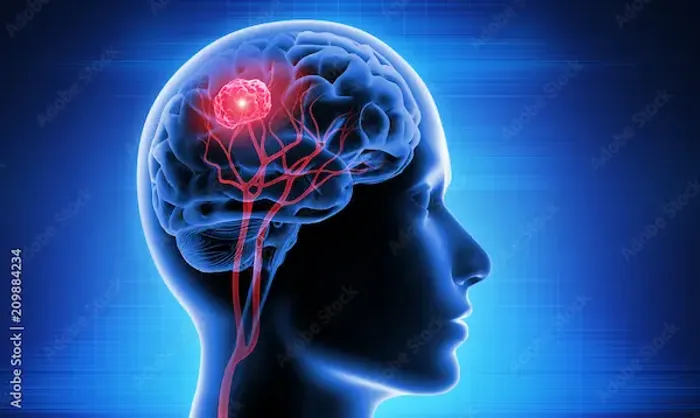
Introduction
Receiving a brain tumour diagnosis can feel overwhelming. However, the landscape of treatment is evolving at an unprecedented pace, offering new hope and more personalised care than ever before. This guide will walk you through the significant advances in brain tumour treatment, moving beyond traditional methods to explore the cutting-edge therapies that are changing patient outcomes. We will demystify complex procedures, explain how modern brain tumour care is becoming less invasive and more targeted, and highlight the importance of a multidisciplinary approach. Whether you are a patient, a family member, or simply seeking knowledge, understanding these advances can empower you to have informed discussions with healthcare providers. From sophisticated surgical techniques to the revolutionary fields of immunotherapy and genomics, we will cover the key developments that are shaping the future of neuro-oncology.
Understanding Brain Tumours: The Foundation
Before diving into treatment advances, it's crucial to understand what we're dealing with. A brain tumour is an abnormal mass of tissue in which cells grow and multiply uncontrollably.
Not All Brain Tumours Are the Same: Types and Classifications
Brain tumours are incredibly diverse. They are first classified as:
- Primary: Tumours that originate in the brain itself (e.g., glioblastoma, meningioma).
- Metastatic (Secondary): Tumours that have spread to the brain from cancer elsewhere in the body (e.g., from lung or breast cancer).
They are also graded (I-IV) based on how abnormal the cells look under a microscope and how quickly they are likely to grow and spread. This precise diagnosis, often involving a molecular profiling of the brain tumour, is the first critical step toward selecting the most effective treatment plan.
Why Treatment is So Complex: The Blood-Brain Barrier Challenge
The brain is protected by a sophisticated network of blood vessels and cells that form the blood-brain barrier (BBB). This barrier acts as a strict gatekeeper, allowing essential nutrients in while keeping harmful substances out. Unfortunately, it also blocks many chemotherapy drugs from reaching the tumour, which has historically been a major hurdle in treating brain cancer. Many modern advances are focused on overcoming this challenge.
The Pillars of Modern Brain Tumour Management
Treatment often involves a combination of approaches tailored to the individual patient.
Advanced Surgical Techniques: Precision and Safety
The primary goal of surgery is to remove as much of the tumour as possible without damaging critical brain areas responsible for speech, movement, and cognition. Advances in neurosurgery have made this safer and more effective.
Awake Craniotomy: Protecting Critical Functions
For tumours located near eloquent brain regions, surgeons may perform an awake craniotomy. The patient is sedated during the opening of the skull but awakened during the critical tumour removal phase. The surgical team then maps the brain by asking the patient to speak or move parts of their body. This real-time feedback allows the surgeon to avoid damaging vital areas, significantly reducing the risk of post-operative deficits.
Fluorescence-Guided Surgery: Lighting the Way
This technique involves administering a special fluorescent dye (like 5-ALA) to the patient before surgery. The dye is absorbed by tumour cells, causing them to glow a vivid pink under blue light in the operating microscope. This helps the surgeon distinguish tumour tissue from healthy brain with remarkable precision, leading to more complete removals.
Targeted Radiation: Minimising Damage to Healthy Tissue
Radiation therapy remains a cornerstone, but its delivery has become incredibly precise.
Stereotactic Radiosurgery (SRS/Gamma Knife)
Despite its name, SRS is not surgery with a scalpel. It’s a non-invasive procedure that delivers a highly focused, powerful dose of radiation to the tumour from multiple angles. The convergence of these beams targets the tumour with pinpoint accuracy, minimising radiation exposure to the surrounding healthy brain tissue. This is particularly beneficial for small, well-defined tumours or metastases.
Consult a Neurosurgeon for the best advice
The Revolution of Precision Medicine
This is where some of the most exciting advances in brain tumour treatment are happening. Instead of a one-size-fits-all approach, treatments are now tailored to the specific genetic makeup of an individual's tumour.
Targeted Drug Therapy: Attacking the Tumour's Weakness
Through genomic testing, doctors can identify specific mutations, biomarkers, or proteins that drive a tumour's growth. Targeted therapies are drugs designed to block these specific molecular targets. For example, drugs like bevacizumab (Avastin) target a tumour's ability to create new blood vessels (angiogenesis), essentially starving it of nutrients. Other drugs can target specific mutations found in certain types of brain tumours. These treatments often have different, and sometimes fewer, side effects than traditional chemotherapy.
Immunotherapy: Empowering the Body's Own Defenses
Immunotherapy harnesses the power of the patient's own immune system to fight cancer. Our immune systems can recognise and destroy cancer cells, but tumours often develop ways to hide from them. Checkpoint inhibitors are a type of immunotherapy that "releases the brakes" on immune cells (T-cells), allowing them to recognise and attack the tumour. While its application for brain cancer is still being refined through clinical trials, early results for some patients are promising, offering a potential new weapon in the arsenal.
Emerging Frontiers in Brain Tumour Therapy
Beyond precision medicine, other innovative technologies are entering the clinic.
Tumour Treating Fields (TTF): A Novel Approach to Slowing Growth
Tumour Treating Fields (TTF) is a unique, non-invasive therapy that uses low-intensity, alternating electric fields to disrupt cancer cells' ability to divide. The patient wears a portable device that generates these fields through transducer arrays placed on the scalp. While the mechanism is complex, think of it as creating a force field that interferes with the tiny building blocks cells need to multiply. For certain types of glioblastoma, TTF has been shown to improve survival rates when combined with chemotherapy.
The Promise of Liquid Biopsies for Brain Tumours
A traditional biopsy requires brain surgery. Liquid biopsies are an emerging technique that aims to detect tumour DNA fragments in a simple blood sample. This could allow doctors to monitor a tumour's response to treatment, detect recurrence earlier, and identify new mutations without the need for repeated invasive surgeries. While not yet standard, it represents a significant advance toward less invasive management.
Personalised Cancer Vaccines and CAR-T Cell Therapy
These are cutting-edge areas of research. Personalised vaccines are created from a patient's own tumour cells to train the immune system to target the cancer. CAR-T cell therapy involves extracting a patient's T-cells, genetically engineering them in a lab to better recognise cancer cells, and then infusing them back into the body. These therapies hold immense potential for the future.
The Central Role of Genomic Testing and Clinical Trials
The common thread linking many modern advances is the need for detailed genetic information about the tumour. Genomic testing is no longer optional; it's essential for determining eligibility for targeted therapies and immunotherapies. This often leads to discussions about clinical trials for recurrent brain tumour cases. Clinical trials are research studies that evaluate new treatments and are the primary engine for future advances. If your condition does not improve with standard methods, consulting a specialist who can discuss relevant trials is a critical step. You can consult an oncologist online with Apollo24|7 to get a preliminary understanding of your options.
Living Well: The Importance of Supportive and Palliative Care
Advances aren't just about killing cancer cells; they're also about improving quality of life. Supportive and palliative care focuses on managing symptoms like seizures, headaches, and fatigue, and providing emotional and psychological support. This care is integrated from diagnosis onward and is a vital component of comprehensive brain tumour management.
Conclusion: A Future of Personalised Hope
The journey toward conquering brain tumours is being reshaped by remarkable scientific advances. We are moving from an era of broad-stroke treatments to one of personalised, targeted therapy. The integration of sophisticated surgery, precision radiation, genetic insights, and immune-based strategies offers a more hopeful and effective path for patients. While challenges remain, particularly in overcoming the blood-brain barrier and treating the most aggressive tumours like glioblastoma, the pace of discovery is accelerating. Staying informed, seeking care from a multidisciplinary team at a specialised centre, and being open to discussions about genomic testing and clinical trials are the best steps a patient can take. If you or a loved one are navigating a brain tumour diagnosis, remember that you are not alone. Book a physical visit to a specialist with Apollo24|7 to create a comprehensive and modern treatment plan tailored to your unique needs.
Consult a Neurosurgeon for the best advice
Consult a Neurosurgeon for the best advice

Dr. Gopal Achari
Neurosurgeon
20 Years • MBBS, MS (GEN SUR), MCH (NEURO SUR)
Kolkata
Apollo Multispeciality Hospitals , Kolkata, Kolkata

Dr. Aditendraditya Singh Bhati
Neurosurgeon
21 Years • MBBS(2004), DNB Neurosurgery(2014); MNAMS; Fellow Skull Base Endoscopy (Italy), Fellow Extended Skull Base ( Weill Cornell, USA), Fellow ZAP-X Radiosurgery. Member of American Association of Neurological Surgeons
Delhi
Apollo Hospitals Indraprastha, Delhi
(100+ Patients)
Parth Joshi
Neurosurgeon
9 Years • MBBS, DrNB Neurosurgery(Apollo,Hyderabad ) Fellowship In Endovascular and Vascular Neurosurgery ( Manipal, Banglore)
Ahmedabad
Apollo Hospitals - Gandhinagar, Ahmedabad, Ahmedabad
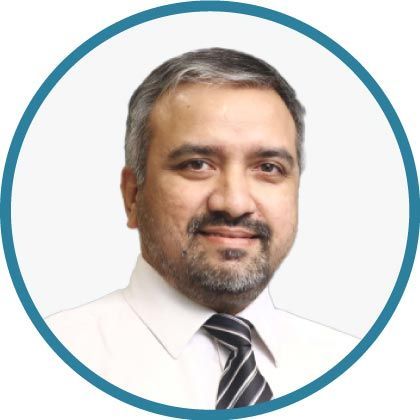
Dr. Joy Verghese
Neurosurgeon
21 Years • MBBS, MS, MCH (Neuro surg. ), FMVS, FSS, FINR, MCH Neurosurgery (Mumbai University), FINR (Zurich University, Switzerland)
Chennai
Apollo Hospitals Greams Road, Chennai
(150+ Patients)

Dr. Vigneshwar Ravisankar
Neurosurgeon
9 Years • M.B.B.S, MRCS (Eng), DNB (Gen. Surg), MCh (Neurosurgery), FNS (Japan).
Chennai
Apollo Speciality Hospitals OMR, Chennai
(25+ Patients)
Consult a Neurosurgeon for the best advice

Dr. Gopal Achari
Neurosurgeon
20 Years • MBBS, MS (GEN SUR), MCH (NEURO SUR)
Kolkata
Apollo Multispeciality Hospitals , Kolkata, Kolkata

Dr. Aditendraditya Singh Bhati
Neurosurgeon
21 Years • MBBS(2004), DNB Neurosurgery(2014); MNAMS; Fellow Skull Base Endoscopy (Italy), Fellow Extended Skull Base ( Weill Cornell, USA), Fellow ZAP-X Radiosurgery. Member of American Association of Neurological Surgeons
Delhi
Apollo Hospitals Indraprastha, Delhi
(100+ Patients)
Parth Joshi
Neurosurgeon
9 Years • MBBS, DrNB Neurosurgery(Apollo,Hyderabad ) Fellowship In Endovascular and Vascular Neurosurgery ( Manipal, Banglore)
Ahmedabad
Apollo Hospitals - Gandhinagar, Ahmedabad, Ahmedabad

Dr. Joy Verghese
Neurosurgeon
21 Years • MBBS, MS, MCH (Neuro surg. ), FMVS, FSS, FINR, MCH Neurosurgery (Mumbai University), FINR (Zurich University, Switzerland)
Chennai
Apollo Hospitals Greams Road, Chennai
(150+ Patients)

Dr. Vigneshwar Ravisankar
Neurosurgeon
9 Years • M.B.B.S, MRCS (Eng), DNB (Gen. Surg), MCh (Neurosurgery), FNS (Japan).
Chennai
Apollo Speciality Hospitals OMR, Chennai
(25+ Patients)
More articles from Brain Tumor
Frequently Asked Questions
1. What is the latest treatment for glioblastoma?
The latest approaches combine multiple modalities. The standard of care often includes maximal safe surgical resection, followed by radiation and chemotherapy (temozolomide). Newer additions include Tumour Treating Fields (TTF) and, for tumours with specific biomarkers, targeted therapies and immunotherapy options available through clinical trials.
2. Are these new brain tumour treatments available in India?
Yes, many major cancer centres and hospitals in India now offer advanced treatments like awake craniotomy, stereotactic radiosurgery (Gamma Knife/ CyberKnife), targeted therapies, and access to both local and international clinical trials. It's important to seek care at a high-volume neuro-oncology centre.
3. What are the side effects of targeted therapy compared to chemotherapy?
Targeted therapy is designed to be more specific, so it often has different side effects. Instead of widespread issues like low blood counts and severe nausea, side effects can include skin rashes, high blood pressure, fatigue, or problems with wound healing. The specific side effects depend on the drug and its target.
4. How does immunotherapy work for brain tumours?
Immunotherapy, particularly checkpoint inhibitors, works by blocking proteins that prevent immune cells (T-cells) from attacking cancer. It essentially 'releases the brakes' on the immune system. Its effectiveness depends on the tumour type and its specific genetic characteristics.
5. Is a liquid biopsy for brain tumours reliable?
Liquid biopsy is an emerging and promising technology. While it is not yet as reliable as a surgical biopsy for initial diagnosis, it shows great potential for monitoring treatment response, detecting recurrence early, and identifying new mutations over time, all through a simple blood test.
